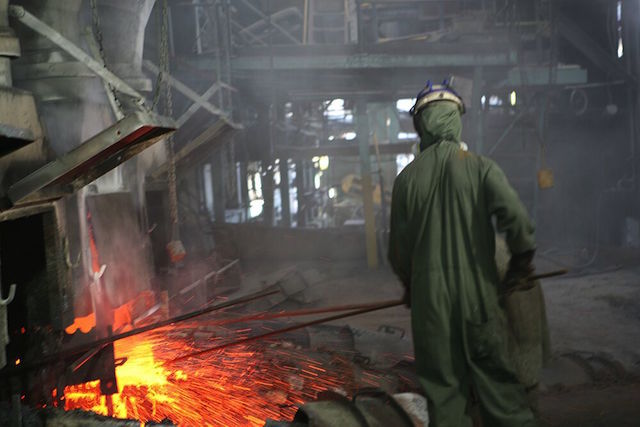Jonny Myers: Safety at work
22 December 2015 | Story Natalie Simon. Photo Jonny Myers.
Workers exposed to occupational hazards are usually amongst the most vulnerable members of a society. My work as an occupational health researcher has helped contribute to policy formulation around, and the regulation of, workplace exposure to hazardous substances.
Workplace exposure to substances that are hazardous to human health, such as asbestos and silica dust, has ruined the health and lives of hundreds of thousands of vulnerable workers. Today South African workers are protected by legislation, including the Occupational Health and Safety Act and the Mine Health and Safety Act.
It is in part thanks to the important work done by Professor Jonny Myers during the final years of apartheid and transition into democracy that organised workers were able to push for better health and safety at work. This included health screenings for vulnerable workers and safer working practices with reduced exposure to hazardous substances such as asbestos.
Occupational health is a research area that easily slips between the gaps. “It is traditionally viewed as the responsibility of the private sector, where most production takes place, ” says Myers. “But the private sector typically regards research in this field with suspicion because of the fear that research results will compromise productivity and profits.”
Limited public sector resources did not stop Myers, however. He dedicated his life and work to evidence-based research in this field, contributing to the policy, labour legislation and regulatory structures in the years after the transition to democracy.
Myers received the first ever Alan Pifer Award for his socially responsive research, and in doing so described UCT as a “nurturing institution”: “For a long time, throughout South Africa’s troubled history,” he said, “I have felt that UCT is a ‘country within a country’, and am proud to be associated with the university and what it stands for.”
Workplace exposure to substances that are hazardous to human health, such as asbestos and silica dust, has ruined the health and lives of hundreds of thousands of vulnerable workers. Today South African workers are protected by legislation, including the Occupational Health and Safety Act and the Mine Health and Safety Act.
It is in part thanks to the important work done by Professor Jonny Myers during the final years of apartheid and transition into democracy that organised workers were able to push for better health and safety at work. This included health screenings for vulnerable workers and safer working practices with reduced exposure to hazardous substances such as asbestos.
Occupational health is a research area that easily slips between the gaps. “It is traditionally viewed as the responsibility of the private sector, where most production takes place, ” says Myers. “But the private sector typically regards research in this field with suspicion because of the fear that research results will compromise productivity and profits.”
Limited public sector resources did not stop Myers, however. He dedicated his life and work to evidence-based research in this field, contributing to the policy, labour legislation and regulatory structures in the years after the transition to democracy.
Myers received the first ever Alan Pifer Award for his socially responsive research, and in doing so described UCT as a “nurturing institution”: “For a long time, throughout South Africa’s troubled history,” he said, “I have felt that UCT is a ‘country within a country’, and am proud to be associated with the university and what it stands for.”
 This work is licensed under a Creative Commons Attribution-NoDerivatives 4.0 International License.
This work is licensed under a Creative Commons Attribution-NoDerivatives 4.0 International License.
Please view the republishing articles page for more information.
Related
Why South Africa's carbon tax should stay
24 Feb 2026
Republished
Cape Town’s wildflowers: six key insights from a new checklist
19 Feb 2026
Republished









